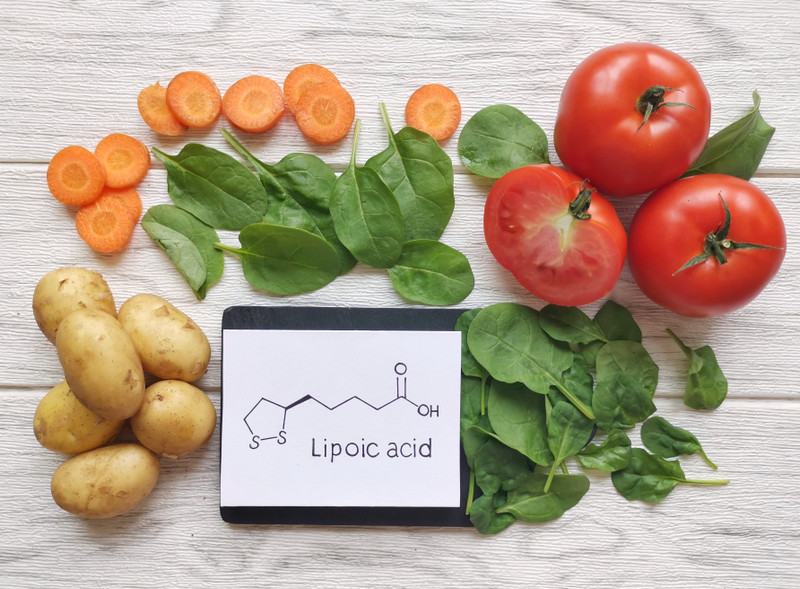Alpha-lipoic acid is a substance manufactured in the body and available as a dietary supplement. Known for its antioxidant properties, alpha-lipoic acid is known to provide an assortment of health-related benefits. Here is a brief look at the chemistry of this compound, and the manners in which it can benefit your health.
What Is Alpha-Lipoic Acid?
Alpha-lipoic acid (ALA) is a natural substance that primarily functions as an antioxidant in the human body. Technically put, it is a caprylic acid-derived antioxidant that is produced in the mitochondria of cells, and it is a major contributor to the enzymatic breakdown of nutrients.
ALA is found in red meat and certain plant-based foods. It is renowned for its benefits as a dietary supplement. ALA’s strong antioxidant properties make it very effective at combating oxidative stress. It has been well-studied for its contribution to mitigation of various metabolic disorders.
Alpha-lipoic acid works by eliminating reactive oxygen species, which are easily reactive molecules containing oxygen that contribute to bodily oxidative stress. Oxidative stress harms cells and is linked to various disorders as well asincreased risk of infection. ALA also has another chemical function, wherein it enhances a certain form of vasodilation, which provides a specific benefit to diabetic individuals.
The Benefits of Alpha-Lipoic Acid
Following is a look at the most studied and touted benefits of alpha-lipoic acid. ALA, in some cases, is beneficial on its own. In others, it is a credible supplement to a more holistic medical treatment regime. This is certainly the case for those with diabetes who choose to take ALA.
Metabolic disorders, especially those related to glucose metabolism, could be helped by supplementation with alpha-lipoic acid. Studies show that regular ALA supplementation reduced fasting blood glucose and insulin resistance in those with prediabetes. Another study showed that in those with metabolic disorders causing abnormal glucose and lipid metabolism, supplementing with ALA improved vasodilation by a significant margin over four weeks. Both of these effects can improve health outcomes for those with glucose-related metabolic disorders.
Diabetic neuropathy could be helped by supplementing with ALA. Diabetic neuropathy causes pain, usually in the limbs, as well as sensations of burning, itching, tingling and numbness; These are the result of nerve damage. Studies suggest that oral supplementation with ALA could reduce these symptoms. ALA could also reduce the symptoms of autonomic neuropathy, a form of neuropathy which affects the internal organs.
High cholesterol and hyperlipidemia (excess fat in the blood) both could be managed by alpha-lipoic acid. Supplementing with ALA can effectively lower unhealthy low-density lipoprotein cholesterol, and total cholesterol.
Multiple sclerosis (MS): Evidence suggests that high doses (1,200mg) of ALA taken daily could improve health outcomes for MS patients. It does so by increasing immunomodulatory activity, in ways which benefit those with MS.
Obesity: Alpha-lipoic acid supplementation has the potential to spur weight loss. It does so by reducing the activity of AMP-activated protein kinase (AMPK), a substance produced in the brain which induces hunger. It’s been shown to have a slight benefit to weight loss over 14-23 weeks when compared to a placebo.
Alpha-lipoic acid is a natural substance and supplement with a range of specific benefits. If you are prediabetic, diabetic, or overweight, consider how supplementing with ALA could benefit you. We recommended talking to your healthcare provider before starting any sort of intake regimen with ALA.

